Plenary Speakers
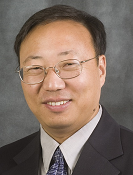 Prof. Dr. Albert C. J. Luo
Prof. Dr. Albert C. J. Luo
Southern Illinois University Edwardsville, USA
Title: Towards infinite countable bifurcation trees of period-m to chaos in nonlinear dynamical systems with saddle-nodes
Abstract: In this talk, infinite bifurcation trees of periodic motions to chaos in in nonlinear dynamical systems with saddle-nodes are addressed.
The bifurcation trees of periodic motions to chaos in nonlinear dynamical systems is very significant for a better understanding of motion complexity. When a slowly varying excitation becomes very slow, the infinite bifurcation trees of period-1 motions to chaos in nonlinear dynamical systems can be achieved once the corresponding excitation amplitude approaches infinity. Towards infinite bifurcation trees in the Duffing oscillator and pendulum are discussed as examples.
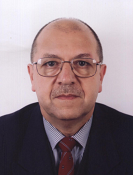 Prof. Dr. J. A. Tenreiro Machado
Prof. Dr. J. A. Tenreiro Machado
Institute of Engineering, Polytechnic of Porto, Portugal
Title: Fractional Calculus: Fundamentals, Concepts and Some Applications
Abstract: Fractional Calculus (FC) started in 1695 when L'Hopital wrote a letter to Leibniz asking for the meaning of Dny for n = 1/2. Starting with the ideas of Leibniz many important mathematicians developed the theoretical concepts. By the beginning of the twentieth century Olivier Heaviside applied FC in the electrical engineering, but, the visionary and important contributions were forgotten. Only during the eighties FC emerged associated with phenomena such as fractal and chaos and, consequently, in nonlinear dynamical. In the last years, FC become 'new' tool for the analysis of dynamical systems. This lecture introduces the FC fundamental concepts and presents several applications in distinct areas of science and engineering.
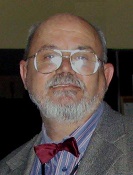 Prof. Dr. Jordan Hristov
Prof. Dr. Jordan Hristov
University of Chemical Technology and Metallurgy, Bulgaria
Title: Exponential and Related Non-Singular Memories: What is following after that in modelling technology?
Abstract: The recently appeared fractional operators with non-singular memory kernel described by exponential (Caputo-Fabrizio derivative) and generalized Mittag-Leffler function (Atangana-Baleanu derivative) raise many questions about their properties and mainly about their physical relevance and applications. This lecture focuses on the physics provoking creations of such fractional operators, compare their properties with the features of the well-known fractional operators with singular kernels and mainly, try to clarify what really we may models with them.
INVITED SPEAKERS
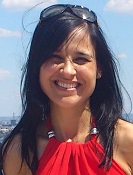 Prof. Dr. Carla Pinto
Prof. Dr. Carla PintoSchool of Engineering, Polytechnic of Porto, Portugal
Title: On recent applications of non-integer order models to biological systems
Abstract: Research on fractional order (FO) models has suffered an extraordinary boost in the last few decades. The main reason is that FO models provide a more complete understanding of the complex dynamics of biological systems, than their integer order counterparts. In this talk, we will do a review on applications of FO models to biological systems, with emphasis to epidemiological models. We will discuss equilibria, stability of equilibria, reproduction number, and the role of the FO derivative in the epidemics' drama.
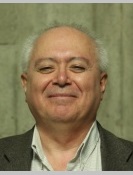 Prof. Dr. Mehmet Kemal Leblebicioglu
Prof. Dr. Mehmet Kemal LeblebiciogluMiddle East Technical University, Turkey
Title: Observability, Controllability and Identifiability Problems in Some Unmanned Air, Sea and Underwater Vehicles
Abstract: Unmanned vehicles have become increasingly important in military and civil world. In paralel with the increasing importance, many research problems have arised as regards to these vehicles. Among them, maybe the foremost one is the construction of mathematical models associated with these vehicles, which are mostly nonlinear and very complicated. A researcher must decide on how complicated the model should be if a simulation with the aim of design is to be performed on this model. Determination of model parameters and designing the vehicle is a highly nested procedure.
Even when a physical model has been constructed, a system identification procedure is often necessary to be used in the development of autopilot and guidance studies. This is basically solving a multiple global optimum optimization problem. Usually, help from the physical side is required; otherwise optimization algorithm may yield a completely unrealistic set of model parameters.
These models are absolutely necessary in order to develope controllers which are called autopilots. There are well known controller structures as well as very interesting nonlinear controllers. Lately, intelligent controllers have been developed for accomplishing certain actions which are almost impossible to succeed with traditional ones.
Finally, these unmanned vehicles frequently operate autonomously; This requires a reference should signal to be fed to the controller. This is the part which is the most intelligent; Usually image processing and pattern recognition kind of computations are followed by target tracking.
In this speech, all these problems will be discussed on some unmanned air, sea surface and underwater vehicles that I and my group have developed. Some directions of research will be indicated as well.
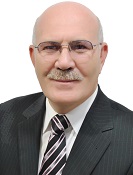 Prof. Dr. Ekrem Savas
Prof. Dr. Ekrem SavasUsak University, Turkey
Title: Some New Sequence Spaces
Abstract: In this paper, we investigate some new sequence spaces of strongly lacunary almost summable sequences, which naturally come up for investigation and which will fill up a gap in the existing literature and introduce the spaces of strongly lacunary almost summable sequences which happen to be complete paranormed spaces under certain conditions. Some topological results, characterization of strongly lacunary almost regular matrices, uniqueness of generalized limits and inclusion relations of such sequences have been discussed.